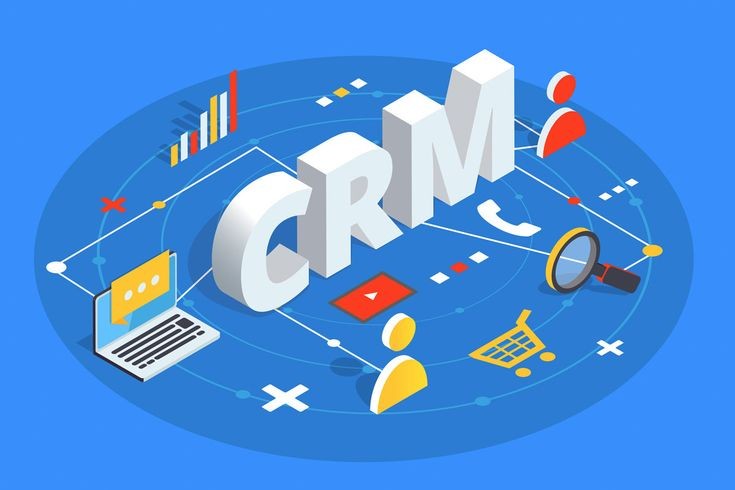The Role of CRM Software in Customer Service:
- Centralized Customer Information:
CRM software consolidates all customer data in one place, making it easily accessible for customer service teams. This includes detailed customer profiles, interaction history, purchase records, and preferences. With this valuable information at hand, service agents can provide faster and more personalized responses, ensuring a positive experience for customers. - Faster Response Times:
In the digital age, customers expect quick resolutions to their problems. CRM systems help reduce response times by automating processes, such as ticket creation and case routing, which allows service teams to prioritize urgent issues. Automated systems also help answer common queries using AI-powered chatbots, reducing wait times and enhancing overall efficiency. - Omnichannel Support:
Customers interact with businesses through multiple channels—email, social media, live chat, and phone calls. CRM software enables businesses to manage all customer communication through a single platform, ensuring that customers receive consistent and timely service, no matter the channel they use. This omnichannel approach is key to providing a seamless and efficient service experience. - Tracking and Analytics:
One of the greatest benefits of CRM software is its ability to track and analyze customer service interactions. By collecting data on response times, resolution rates, and customer satisfaction scores, businesses can continuously assess the effectiveness of their service strategies. CRM analytics provide actionable insights that help businesses refine their processes, identify trends, and optimize customer service delivery. - Proactive Customer Support:
CRM systems allow businesses to take a proactive approach to customer service. By analyzing customer data, CRM software can identify potential issues before they arise and alert customer service teams. For example, if a customer has experienced recurring issues with a product, the CRM can automatically trigger a follow-up email offering assistance or a discount. This proactive outreach builds customer trust and strengthens relationships.
Top CRM Software for Enhancing Customer Service:
- Zendesk:
Zendesk is a widely recognized CRM platform known for its customer service features, including ticket management, live chat, and reporting tools. It offers seamless integration with multiple channels, enabling businesses to deliver efficient support through email, chat, and social media. - Freshdesk:
Freshdesk is another excellent CRM solution for customer service teams. It offers features like automated ticketing, multi-channel support, and real-time analytics, all within an intuitive interface. Freshdesk helps businesses scale their customer service operations without compromising quality. - Salesforce Service Cloud:
Salesforce Service Cloud is a comprehensive CRM tool that provides advanced features for customer service teams. It includes case management, knowledge base creation, and AI-powered chatbots, allowing businesses to provide high-quality service and enhance customer experiences. - HubSpot Service Hub:
HubSpot’s Service Hub is designed to help businesses deliver exceptional customer support. It offers ticketing systems, customer feedback tools, and a comprehensive reporting suite, all integrated with HubSpot’s other CRM and marketing features. This platform enables businesses to offer highly personalized service at scale.
Best Practices for Maximizing CRM in Customer Service:
- Invest in CRM Training:
To ensure the full potential of CRM software, it’s crucial to invest in training for your customer service team. The more proficient your team is in using the CRM system, the more effective they’ll be at delivering high-quality service to customers. - Integrate with Other Business Systems:
For an even more powerful customer service experience, consider integrating your CRM with other business systems, such as marketing automation tools or sales platforms. This ensures that customer data flows seamlessly between departments, enabling more cohesive and informed service. - Update Customer Data Regularly:
The effectiveness of a CRM system depends heavily on the accuracy and timeliness of customer data. Regularly updating customer profiles ensures that your team can offer the most relevant support and recommendations, improving satisfaction. - Analyze Customer Feedback:
Use the analytics tools in your CRM to track customer feedback and satisfaction scores. Understanding the pain points and needs of your customers allows you to refine your service strategies, making sure that your team consistently meets customer expectations.
Conclusion:
CRM software has become an indispensable tool for businesses looking to improve customer service. By centralizing customer data, automating processes, and providing powerful analytics, CRM systems empower businesses to offer faster, more personalized, and proactive support. The result is not only improved customer satisfaction but also stronger brand loyalty and long-term business success. Implementing the right CRM software and integrating it with your customer service team’s workflow can transform the way your company engages with customers, leading to more meaningful and lasting relationships.



